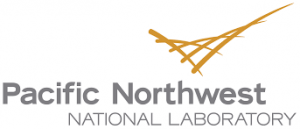MultiSector Dynamics
The MultiSector Dynamics (MSD) community aims to improve our understanding of the co-evolution of human and natural systems over time, and build the next generation of tools that bridge across sectors (energy, water, land, economy) and scales (spatial, temporal), and offer a holistic view of systems-of-systems. Using these tools, the MSD community aims to identify and illuminate how key processes act across the multiple scales that shape the complex interactions and multidirectional feedbacks among human and Earth systems. The Wild Group has two MSD-related projects. Dr. Wild is also co-chair of the MSD working group on Professional Development and Education for Early Career Scientists.
Ongoing
1. Water Sector Dynamics in the Global Change Intersectoral Modeling System (GCIMS)
This project is part of the Global Change Intersectoral Modeling System (GCIMS) Scientific Focus Area (SFA) (https://gcims.pnnl.gov/), a multi-institutional and multi-disciplinary project sponsored by the U.S. Department of Energy and led by the Pacific Northwest National Laboratory. Broadly, the project focuses on understanding the complex interactions among energy, water, land, socioeconomics, climate, and other important human and natural systems at regional to global scales. GCIMS team members at the University of Maryland (UMD) are focused specifically on enhancing the representation of water dynamics in GCIMS, and contributing to scientific experiments that explore challenges and opportunities for the human system’s responses to evolving environmental influences such as droughts. The UMD team will contribute to developing water-related aspects of the GCIMS framework by enhancing representations of supply-side and demand-side processes and technologies. These enhancements, which will focus on the Global Change Analysis Model (GCAM) and its suite of interconnected tools, will span renewable groundwater, lakes, water reuse, irrigation technology, and reservoirs. Particular emphasis will be placed on developing an integrated accounting framework in GCAM that balances monthly water supply and demand by including reservoirs and their operations in each water basin globally. This research will benefit from creating and exploring linkages across multiple models that cut across different spatiotemporal scales and processes.
Opportunities to join this project
Please visit the GCIMS project website for more details.
Sponsor: U.S. Department of Energy, via Pacific Northwest National Laboratory (PNNL)
Completed
1. Integrating Human and Earth System Dynamics (IHESD) Science Focus Area (SFA)
Exploring human-earth system dynamics, with a focus on the water infrastructure investment and water quality implications of global socioeconomic change and climate change.
Sponsor: U.S. Department of Energy, via Pacific Northwest National Laboratory (PNNL)

